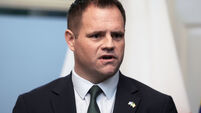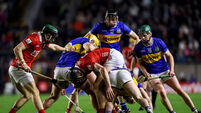Elaine Loughlin: North begins a new chapter with the historic Windsor Framework

With a protocol deal now done, the DUP can no longer avoid Sinn Féin. The beginning of a new chapter was how European Commission president Ursula von der Leyen described the Windsor Framework at a joint press conference with British prime minister Rishi Sunak yesterday.















